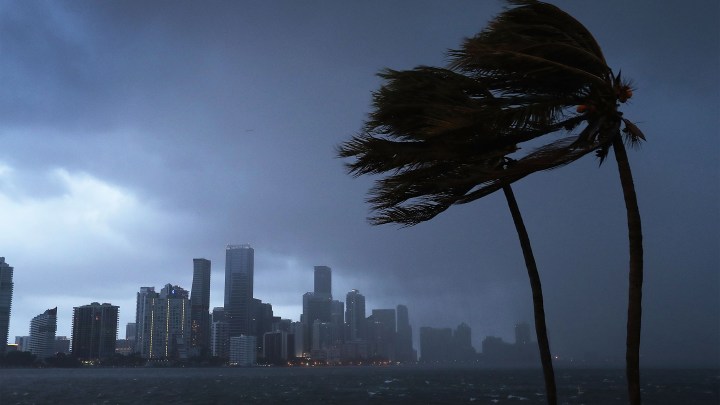
States enter hurricane season with pandemic-strained budgets
States enter hurricane season with pandemic-strained budgets

Atlantic hurricane season began Monday, and forecasters are predicting an active year for what can be deadly — and expensive — storms. FEMA often steps in with support, but much of the cost of dealing with natural disasters ends up falling to the states, many of which have budgets already strained by their COVID-19 response.
“We’re still going to have a horrific hurricane season. We’re still going to have severe weather,” said Nora O’Brien, CEO of Connect Consulting Services, which advises state and local governments on emergency preparedness.
Mississippi, for example has already spent about $62 million on its COVID-19 response, more than five times what it spent during record flooding last year.
“That’s because we have had to track down and purchase our own [personal protective equipment] from outside sources and other countries as well,” said Malary White, a spokesperson for the Mississippi Emergency Management Agency. Nevertheless, White said, the state is still ready to respond to any big storm.
The Federal Emergency Management Agency — FEMA — will likely reimburse some of these emergency costs, and the agency has a special response plan for hurricanes during the pandemic. Additionally, the CARES Act set aside some funding for state responses to COVID-19 that can potentially offset some of the money states and local governments may have pulled from their reserves.
O’Brien at Connect Consulting said the logistics of dealing with a big storm are going to be a challenge as well.
“Generally when you have a hurricane, you’re going to evacuate people out of an area before that hurricane hits,” she said. “Well, sheltering people in the time of COVID is a very risky business,” given that it will likely be more challenging to house people in traditional shelters while practicing social distancing.
On top of that, after months of battling the coronavirus, many emergency workers will probably be exhausted, said Steve Malanga, a fellow at the Manhattan Institute.
“These workers will have to be peeled off to move in a new direction,” Malanga said. “So that may actually slow or set back some of the COVID responses that people have been relying on these workers for.”
It’s another concern for states to juggle, even as the tax revenue usually used to pay for emergencies and other local expenses has fallen, said Lucy Dadayan, a senior research associate at the Urban Institute.
“In addition to hurricane season, there is a big pressure on the states to address the health care costs and unemployment insurance claims which just skyrocketed,” Dadayan said.
There’s a lot happening in the world. Through it all, Marketplace is here for you.
You rely on Marketplace to break down the world’s events and tell you how it affects you in a fact-based, approachable way. We rely on your financial support to keep making that possible.
Your donation today powers the independent journalism that you rely on. For just $5/month, you can help sustain Marketplace so we can keep reporting on the things that matter to you.

















